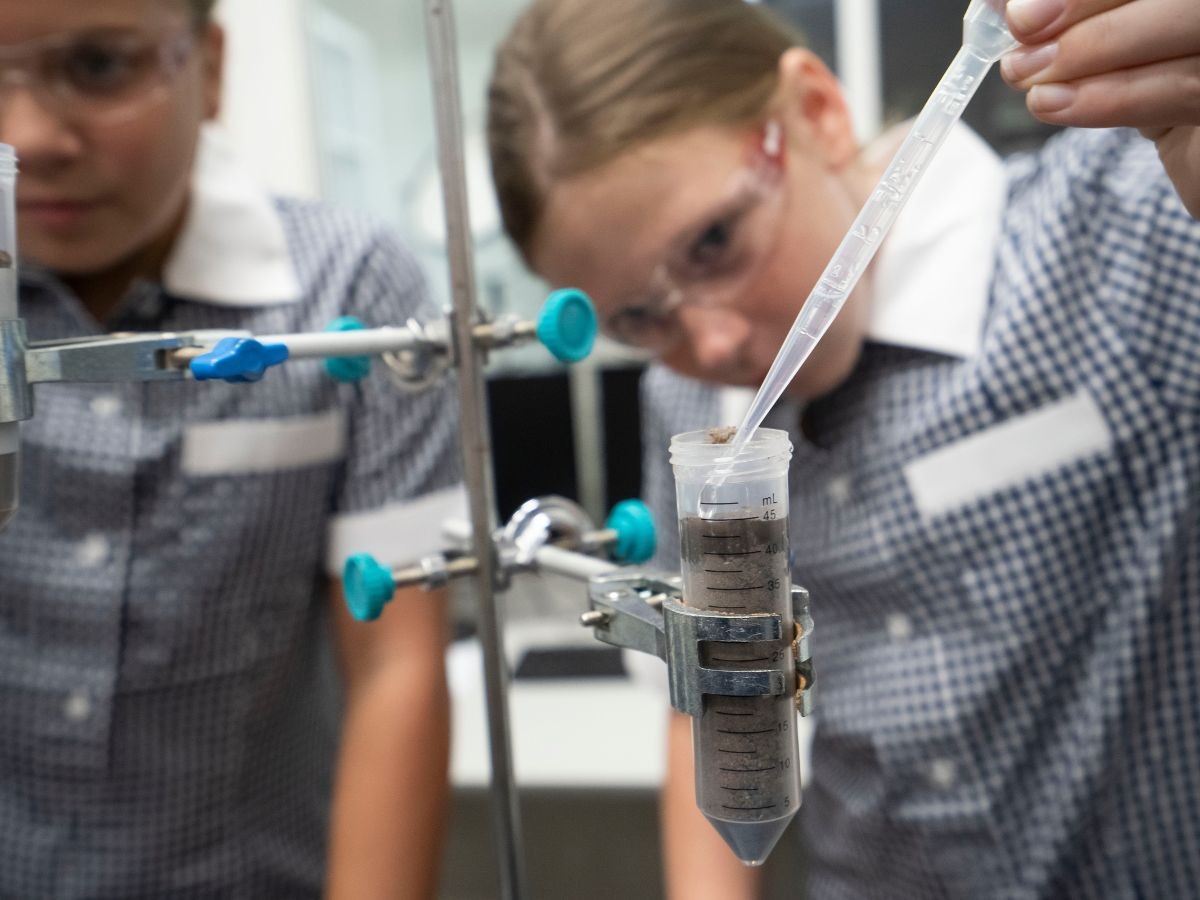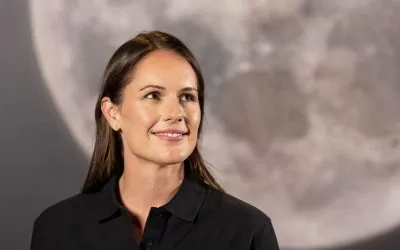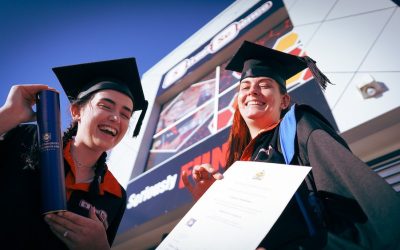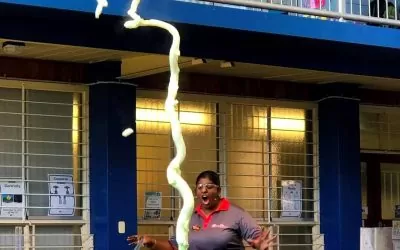Science is one of the most important subjects covered in Australian schools. And, while our classes offer a solid foundation in the sciences, the associated skill-building activities are equally important. Not all students will go on to become scientists or use their biology, physics and chemistry knowledge in everyday life. But every student can benefit from learning Science Inquiry Skills that help shape their thought and decision making patterns.
Australia’s school curriculum places a large emphasis on supporting young learners to develop and apply inquiry skills. There are plenty of things you can do to encourage your students to develop their inquiry skills, and we’re going to explore those opportunities below.
What Are Science Inquiry Skills?
Science classes play a huge role in building your students’ understanding of the world. The science content you cover provides a foundation in topics like biology and physics that students will use time and again throughout their school careers. But science classes are more than just their content! To reflect that, the Australian Curriculum places an emphasis on encouraging young students to build their inquiry skills.
These skills are collectively referred to as Science Inquiry Skills (SIS). SIS are general inquiry skills that help shape students’ decision making, logic and critical thinking patterns. Combining SIS with the content of science classes allows students to build their skills in a more meaningful context. By associating inquiry with science topics, teachers can improve students’ understanding of complex content and encourage them to develop and apply life-long thinking skills.
The Importance of Building Science Inquiry Skills
Science inquiry skills provide a foundation that young students can use to understand science, school and real-world topics. Building SIS at a young age equips students with a framework they can use to absorb, apply and practise the things they’re learning in school. SIS are so important that some researchers have even recommended reducing the amount of time spent covering science content and increasing the time spent developing inquiry skills.
The importance of science inquiry skills is recognised in the Early Years Learning Framework (EYLF) and the Australian Curriculum. These sources both see SIS as the best way to encourage students to become confident, involved and successful learners. SIS are so important that they are covered by a specific strand in the Australian Curriculum, which sets out four key outcomes for students to achieve:
- Pose and respond to questions about familiar objects and events [ACSIS014]
- Participate in guided investigations and make observations using the senses [ACSIS011]
- Engage in discussions about observations and represent ideas [ACSIS233]
- Share observations and ideas [ACSIS012]
These outcomes become more complex with each subsequent school year. Reaching these outcomes means developing lessons that offer instruction on the five core SIS listed below.

1. Questioning and Predicting
Science inquiry skills are built in a student’s earliest years of schooling. That can present a few challenges when introducing complex topics, but it means teachers can take advantage of students’ natural curiosity. Young children are fantastic at asking questions, and encouraging this is the first stage of developing science inquiry skills.
The biggest thing you can do to encourage questioning skills is to highlight trends that students can observe for themselves. While you’re conducting a lesson, lead the way by asking questions that will be answered by your material or as part of the experiment. For example, simple questions like “What do you think will happen next?” encourage students to think about their existing knowledge. They’ll attempt to predict what happens next, and then you can conduct a small experiment to find out. These little activities help to engage students and develop a curiosity they’ll be able to use throughout their lives.
2. Planning and Conducting
The best way to reinforce students’ questioning skills is to plan and conduct experiments. Testing ideas allows students to get hands-on with a subject and teaches them processes they can use to pursue their curiosities. In the early years from K-2, planning and conducting skills are taught through participation in guided investigations. That means it’s your job to conduct an experiment and demonstrate how students can apply the frameworks they’re learning.
In the early years, educators can develop SIS by leading experiments. Explain the science involved using real-world concepts that students are already familiar with. During experiments you can introduce measurement and recording equipment to get students involved. The use of equipment like rulers, scales, magnifying glasses or drawing pads engages students and supports the development of their SIS. When introducing new measuring devices you should allow students to become familiar with the equipment. Give them time to explore how the equipment works and how it can be used to answer the questions at the heart of the experiment.
3. Processing, Modelling and Analysing
Teaching students to analyse the results of experiments can be a challenge, but it doesn’t need to be complicated. At a young age you could lead an experiment about mixing paint. Ask your students to predict which colours they’ll be able to create. Allow them to mix the paint, and then compare the outcomes to their predictions. Simple activities like this can be used to demonstrate how scientific experiments provide information, rather than specific results.
Group work can also play a major role in developing students’ analytical skills. Giving students time to interact with each other allows them to share ideas and helps expose them to new perspectives. With a teacher leading the way in processing the results of an experiment, even young students can learn critical thinking and analytical skills.
4. Evaluating
Evaluating the results of experiments is a major skill for young students. Comparing and discussing the results of experiments reinforces the thinking and processing frameworks students have been learning. This feeds back into SIS development and allows them to improve their questioning, conducting and analysis skills.
You can encourage students to evaluate their experiments with activities like:
- Reviewing their original questions and predictions
- Comparing the results to their hypotheses
- Evaluating how one group’s results compare to the results of others
- Looking at what worked and what went wrong with the experiment
- Leading guided discussions that help students recognise patterns in their results
5. Communicating
Effective communication is an important science inquiry skill that’s often undervalued. Building students’ communication skills ties science classes into other parts of their schooling, and it cements the questions, experiments and results that students have explored. In the early years, students can be encouraged to develop their communication skills in simple ways. Creating drawings, verbalising their findings or even written texts promote reflection, which plays an important role in communication. As students get older, teachers can encourage communication skills by asking students to support their observations using reasoning and evidence.
It’s important to let students practise their science communication skills. If you’re designing lessons with outcomes that are linked to communication, make sure you’re modelling the skills you want to see. You don’t have to ask your students to do anything complicated. But, modelling skills and giving students a chance to practise can dramatically improve the outcome of an experiment.
Encourage Your Students to Develop Their Science Inquiry Skills with Street Science!
Classes that encourage young children to develop science inquiry skills are some of the most important moments in a students’ school career. The SIS learned at an early age will carry on throughout their lives, helping students understand their school, work and the world around them. Developing SIS has become a large part of the Australian Curriculum, which is why Street Science always encourages those core skills through our shows! The team at Street Science are experienced science communicators that offer experiments, shows and FUN science incursions for students of every age. Our shows are designed to ENGAGE students and allow them to get hands-on with experiments that encourage their core science inquiry skills!
The shows, incursions and classroom kits offered by Street Science are all designed in line with the Australian Curriculum. That means we can support your students’ learning with content that helps them reach their full potential. If you’re ready to find out more, get in touch online – we’re always happy to tailor a program to suit your classroom!




